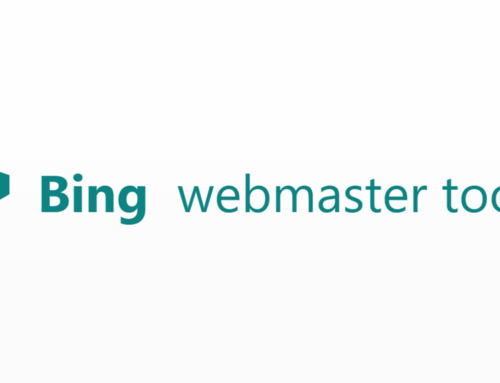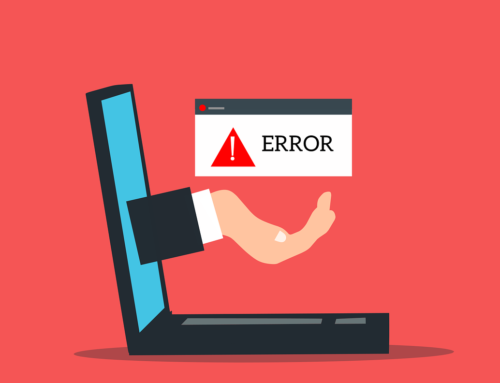Introduction to SEO Executive Roles & Opportunities 2024
The world of digital marketing is constantly evolving, and Search Engine Optimization (SEO) has become a crucial component for businesses to succeed online. 🌐 As we look ahead to 2024, the importance of SEO executives in driving organic growth and visibility is more evident than ever.
Overview of the SEO Industry
The SEO industry has experienced significant growth in recent years, with businesses recognizing the value of organic search traffic. According to a study by BrightEdge, organic search drives 53% of website traffic, emphasizing the critical role of SEO in digital marketing strategies.
Rising Importance of SEO in Digital Marketing
As competition in the digital space intensifies, businesses are investing more in SEO to gain a competitive edge. A survey by Hubspot revealed that 61% of marketers named SEO as their top inbound marketing priority. This shift towards SEO highlights its growing importance in the overall digital marketing landscape.
Brief on What an SEO Executive Does
An SEO executive is a key player in optimizing a website’s visibility and search engine rankings. Their primary responsibilities include:
- ✅ Conducting keyword research
- ✅ Optimizing website content
- ✅ Analyzing data and metrics
- ✅ Collaborating with marketing teams
The goal of an SEO executive is to drive organic traffic, improve search rankings, and enhance the overall online presence of a brand.
“SEO is not about optimizing for search engines, it’s about optimizing for humans who use search engines.” – Rand Fishkin, Founder of SparkToro 🧠
In the following sections, we will dive deeper into the roles, opportunities, and challenges of being an SEO executive in 2024. Get ready to uncover the exciting world of SEO and how you can thrive in this dynamic industry! 🚀
Understanding the SEO Executive Role
As the digital landscape continues to evolve, the role of an SEO executive has become increasingly complex and multifaceted. In this section, we will delve into the intricacies of what it means to be an SEO executive and explore the various responsibilities and skills required to excel in this position.
Definition and Role of an SEO Executive
An SEO executive is a skilled professional who specializes in optimizing websites to improve their visibility and rankings on search engine results pages (SERPs). Their primary objective is to implement effective SEO strategies and techniques that drive organic traffic and increase online visibility for businesses.
Distinction Between Different SEO Roles
Within the SEO industry, there are various roles and levels of expertise. Let’s take a closer look at the key differences:
- Junior SEO Executive: Typically has less experience and focuses on executing predefined SEO strategies under the guidance of senior executives.
- Senior SEO Executive: Possesses extensive experience and is responsible for developing and leading SEO strategies, making critical decisions, and mentoring junior team members.
- SEO Specialist: Specializes in specific areas of SEO, such as technical SEO or content optimization, and works collaboratively with the SEO team.
- SEO Analyst: Focuses on analyzing data, providing insights, and making data-driven recommendations to optimize SEO campaigns.
Core Responsibilities and Daily Tasks
The day-to-day responsibilities of an SEO executive are diverse and challenging. Some of the core tasks include:
- 🔍 Conducting thorough keyword research to identify valuable target keywords
- 📝 Optimizing website content, meta tags, headers, and other on-page elements
- 📊 Monitoring and analyzing website performance using SEO tools and analytics platforms
- 🔗 Developing and implementing link building strategies to improve website authority
- 🚀 Staying updated with the latest SEO trends and algorithm changes
An SEO executive must possess a strong analytical mindset, excellent problem-solving skills, and the ability to adapt to the ever-changing digital landscape.
“The best SEO executives are those who can balance creativity with technical expertise and have a deep understanding of user intent.” – John Mueller, Google Search Advocate 💡
By understanding the nuances of the SEO executive role and the skills required to succeed, aspiring professionals can better prepare themselves for a thriving career in this exciting field.
Path to Becoming an SEO Executive
Embarking on a career as an SEO executive requires a combination of education, skills, and continuous learning. In this section, we will explore the various paths you can take to become a successful SEO executive and highlight the key qualifications and expertise needed to thrive in this role.
Educational Background and Qualifications
While there is no single educational path to becoming an SEO executive, certain qualifications can lay a strong foundation:
- 🎓 A degree in marketing, business, computer science, or a related field
- 📚 Courses or certifications in digital marketing, SEO, web analytics, and content creation
- 💻 Hands-on experience with SEO tools and techniques
Although formal education is valuable, practical experience and a deep understanding of SEO principles are equally important in this field.
Necessary Skills and Expertise
To excel as an SEO executive, you must possess a diverse set of skills and expertise:
- 🧠 Strong analytical and problem-solving abilities
- 🔍 In-depth knowledge of search engine algorithms and ranking factors
- 📝 Proficiency in keyword research, on-page optimization, and link building
- 🤝 Excellent communication and collaboration skills
- 📈 Familiarity with web analytics and data interpretation
Developing and refining these skills through practical experience and continuous learning is crucial for long-term success in the SEO industry.
Certifications and Courses for Professional Development
To stay ahead in the ever-evolving world of SEO, ongoing professional development is essential. Consider pursuing the following certifications and courses:
- 🏅 Google Analytics Certification
- 🏆 Google Ads Certification
- 📚 HubSpot Inbound Marketing Certification
- 🔍 Moz SEO Essentials Certification
Engaging in continuous learning through industry conferences, webinars, and online resources will help you stay updated with the latest trends and best practices in SEO.
“Continuous learning is the minimum requirement for success in any field.” – Brian Tracy, Author and Motivational Speaker 📖
Remember, becoming a successful SEO executive is a journey that requires dedication, passion, and a willingness to adapt and grow in an ever-changing digital landscape.
Navigating the Job Market
Finding the right SEO executive position can be a challenging task, but with the right strategies and preparation, you can increase your chances of landing your dream job. In this section, we will guide you through the process of searching for SEO executive positions, crafting an impressive resume and cover letter, and preparing for job interviews.
How to Search for SEO Executive Positions
To maximize your job search efforts, utilize a combination of online platforms and networking techniques:
- 🔍 Use job search websites like Indeed, LinkedIn, and Glassdoor
- 🚨 Set up job alerts to receive notifications about new SEO executive openings
- 🤝 Attend industry conferences and events to expand your professional network
- 💼 Leverage your existing connections and reach out to companies directly
By diversifying your job search approach, you increase your chances of finding the perfect SEO executive role that aligns with your skills and career goals.
Crafting an SEO-Focused CV and Cover Letter
Your resume and cover letter are crucial tools for showcasing your SEO expertise and capturing the attention of potential employers. Here are some tips to make them stand out:
- 💡 Highlight your SEO skills and experience prominently
- 🎯 Tailor your application to the specific job requirements
- 📊 Include measurable achievements and results from your previous SEO campaigns
- ✍️ Use relevant keywords and industry terminology throughout your application
Remember, your resume and cover letter should be concise, well-structured, and error-free to create a positive first impression.
Preparing for an Interview: Common Questions and Answers
To ace your SEO executive job interview, anticipate common questions and prepare thoughtful responses. Some questions you may encounter include:
- 🤔 “How do you approach keyword research and optimization?”
- 🚀 “Can you share an example of a successful SEO campaign you led?”
- 📈 “How do you stay updated with the latest SEO trends and algorithm changes?”
- 🤝 “How do you collaborate with cross-functional teams to implement SEO strategies?”
Practice your responses, showcase your expertise, and provide concrete examples to demonstrate your value as an SEO executive.
The Importance of a LinkedIn Profile and Networking
In today’s digital age, having a strong LinkedIn profile and actively networking can significantly boost your job search efforts:
- 💼 Optimize your LinkedIn profile with relevant keywords and showcase your SEO achievements
- 🤝 Connect with other SEO professionals and engage in industry discussions
- 🔍 Follow companies you admire and stay updated on their job openings
- 📣 Share your insights and thought leadership through LinkedIn posts and articles
Building a strong professional network can open doors to new opportunities and help you stay informed about the latest trends in the SEO industry.
“Your network is your net worth.” – Porter Gale, Author and Marketing Expert 🌐
By effectively navigating the job market and showcasing your SEO expertise, you increase your chances of landing your dream SEO executive position and embarking on a rewarding career in this dynamic field.
Mastering SEO Skills
To become a successful SEO executive, mastering a wide range of SEO skills and tools is essential. In this section, we will explore the key areas of expertise that SEO professionals must focus on to excel in their roles and drive meaningful results for their organizations.
Essential SEO Skills and Tools
A strong foundation in essential SEO skills is crucial for success. These skills include:
- 🔍 Keyword research and analysis
- 📝 On-page optimization techniques
- 🔗 Link building strategies
- 🛠️ Technical SEO expertise
- 📊 Data analysis and interpretation
To streamline and enhance your SEO efforts, familiarize yourself with essential tools such as Google Analytics, Google Search Console, SEMrush, Ahrefs, and Moz.
Understanding Content and On-Page SEO
Content is the backbone of any successful SEO strategy. As an SEO executive, you must:
- 📝 Create compelling, keyword-rich content that resonates with your target audience
- 🎯 Optimize title tags, meta descriptions, headers, and images for search engines
- 🔗 Implement effective internal linking structures to improve site navigation and SEO
By mastering the art of content creation and on-page optimization, you can significantly improve your website’s visibility and organic search rankings.
Off-Page SEO Strategies and Technical SEO Basics
Off-page SEO refers to activities performed outside of your website to improve its search engine rankings. Key strategies include:
- 🔗 Building high-quality backlinks from authoritative websites
- 🤝 Engaging in guest blogging and influencer outreach
- 📣 Leveraging social media platforms to amplify your content
Technical SEO focuses on optimizing the underlying structure and functionality of your website. Essential technical SEO considerations include:
- 🚀 Improving website speed and performance
- 📱 Ensuring mobile-friendliness and responsive design
- 🗺️ Optimizing site architecture and navigation
By implementing effective off-page SEO strategies and addressing technical SEO fundamentals, you can enhance your website’s authority and improve its search engine visibility.
Keeping Up with SEO Trends and Algorithm Updates
The world of SEO is constantly evolving, with search engines regularly updating their algorithms. To stay ahead of the curve:
- 📰 Follow industry blogs and publications to stay informed about the latest SEO trends and best practices
- 🎓 Attend conferences, webinars, and workshops to expand your knowledge and network with other SEO professionals
- 🧪 Continuously test and refine your SEO strategies based on data-driven insights
“Stay hungry, stay foolish.” – Steve Jobs 🍎
By mastering essential SEO skills, staying updated with the latest trends, and continuously refining your strategies, you can become a truly effective SEO executive and drive long-term success for your organization.
SEO Executive by Location
The job market for SEO executives varies significantly depending on location. In this section, we will explore the SEO job landscape in key cities, discuss the impact of location on salary and job availability, and highlight the rising trend of remote SEO executive opportunities.
Job Opportunities in Key Cities
Certain cities have become hubs for digital marketing and SEO talent. Let’s take a closer look at three major cities:
- 🌉 Sydney
- Home to a thriving digital marketing scene
- Numerous SEO job opportunities across industries
- Competitive salaries for SEO executives
- 🏙️ Melbourne
- Growing demand for SEO professionals
- Diverse range of companies hiring SEO executives
- Vibrant startup ecosystem creating new opportunities
- 🌴 Perth
- Emerging digital marketing hub
- Increasing demand for SEO executives in various sectors
- Attractive work-life balance and lifestyle options
These cities offer exciting opportunities for SEO executives to grow their careers and work with leading brands and agencies.
The Impact of Location on Salary and Job Availability
Location can significantly influence an SEO executive’s salary and job prospects:
- 💰 Cities with high demand for SEO skills often offer more competitive salaries
- 🌇 Metropolitan areas typically have a higher concentration of companies hiring SEO executives
- 🌄 Smaller cities and regional areas may have fewer job openings but can offer unique opportunities and a lower cost of living
Consider your personal preferences, lifestyle goals, and career aspirations when evaluating the impact of location on your SEO career.
Remote SEO Executive Opportunities
The rise of remote work has opened up new possibilities for SEO executives:
- 🌎 Remote SEO positions allow you to work from anywhere, offering greater flexibility and work-life balance
- 💻 Companies are increasingly open to hiring remote SEO talent, expanding your job prospects beyond geographical boundaries
- 🤝 Collaborating with teams and clients remotely requires strong communication and project management skills
Embracing remote work opportunities can help you tap into a wider pool of SEO executive positions and create a more diverse and fulfilling career.
“The future of work is remote.” – Chris Herd, Founder and CEO of Firstbase 🏠
By understanding the impact of location on SEO executive opportunities and considering the rise of remote work, you can make informed decisions about where to pursue your SEO career and find the best fit for your skills and aspirations.
Advancing Your Career
As an SEO executive, your career path is filled with opportunities for growth and advancement. In this section, we will explore the various ways you can take your SEO career to the next level, from transitioning to senior roles to specializing in specific areas of SEO and taking on leadership responsibilities.
Growth Trajectory for an SEO Executive
Your growth as an SEO executive depends on your ability to continuously learn, adapt, and deliver results. As you gain experience and expertise, you can progress through the following stages:
- 🌱 Junior SEO Executive
- 🌿 Senior SEO Executive
- 🌳 SEO Manager
- 🌲 Director of SEO
Each stage brings new challenges, responsibilities, and opportunities to make a greater impact within your organization.
Transitioning from Junior to Senior Roles
Moving from a junior to a senior SEO executive role requires a combination of technical expertise, strategic thinking, and leadership skills. To make this transition successfully:
- 💡 Take on more complex projects and initiatives
- 🤝 Mentor and guide junior team members
- 📈 Demonstrate your ability to drive measurable results and ROI
- 🎓 Continuously expand your knowledge and stay updated with industry trends
By showcasing your expertise and leadership potential, you can position yourself for senior SEO executive roles and beyond.
Specializations within the SEO Field
Specializing in a specific area of SEO can help you carve out a unique niche and become a sought-after expert. Some popular SEO specializations include:
- 🛠️ Technical SEO
- 📝 Content optimization
- 🌐 International SEO
- 🛒 E-commerce SEO
- 📱 Mobile SEO
By focusing on a specific aspect of SEO and developing deep expertise, you can differentiate yourself in the job market and pursue targeted career opportunities.
Leadership Roles and Managerial Responsibilities
As you advance in your SEO career, you may have the opportunity to take on leadership roles and manage SEO teams. In these positions, you will be responsible for:
- 🎯 Developing and executing SEO strategies
- 🤝 Collaborating with cross-functional teams
- 📊 Measuring and reporting on SEO performance
- 🧑🤝🧑 Hiring, training, and mentoring SEO team members
Embracing leadership roles requires strong communication, problem-solving, and people management skills, in addition to your SEO expertise.
“Leadership is the capacity to translate vision into reality.” – Warren Bennis 🧭
By continuously learning, specializing, and taking on new challenges, you can advance your SEO career and make a lasting impact in the digital marketing industry.
Compensation Insights
Understanding compensation trends and expectations is crucial for both SEO executives and employers. In this section, we will delve into the factors that influence SEO executive salaries, explore compensation benchmarks at different career levels, and discuss additional benefits and perks common in the industry.
Factors Affecting SEO Executive Salaries
Several key factors impact the compensation of SEO executives:
- 📈 Experience level and job title
- 🌇 Location and cost of living
- 🏢 Company size and industry
- 📊 Performance and results achieved
- 🎓 Education and certifications
By understanding these factors, you can better negotiate your salary and make informed career decisions.
Salary Expectations at Different Career Levels
SEO executive salaries can vary significantly based on experience and seniority. Here are some general benchmarks:
- 🌱 Junior SEO Executive: $50,000 – $70,000
- 🌿 Senior SEO Executive: $70,000 – $100,000
- 🌳 SEO Manager: $90,000 – $120,000
- 🌲 Director of SEO: $120,000 – $180,000+
Keep in mind that these figures are averages and can vary widely depending on location, company, and other factors.
Benefits and Compensation Trends
In addition to base salary, many companies offer a range of benefits and perks to attract and retain top SEO talent:
- 🩺 Comprehensive health insurance
- 💰 Performance-based bonuses and incentives
- 📈 Stock options or equity in the company
- 🏖️ Generous vacation and paid time off
- 🌐 Remote work opportunities or flexible schedules
- 🎓 Professional development and training allowances
Stay attuned to industry compensation trends and consider the full package when evaluating SEO executive job offers.
“Compensation is a powerful communication tool. It signals to employees what you believe is important.” – David Russo, HR Expert 💸
By staying informed about compensation benchmarks and trends, you can make strategic career moves and ensure you are fairly compensated for your skills and contributions as an SEO executive.
Challenges and Solutions in SEO
The world of SEO is dynamic and ever-changing, presenting a unique set of challenges for SEO executives. In this section, we will explore common obstacles faced by SEO professionals, share best practices for overcoming these hurdles, and discuss the role of analytics in driving informed decision-making.
Common Challenges Faced by SEO Executives
SEO executives often encounter various challenges in their day-to-day work:
- 🌪️ Keeping pace with algorithm updates and shifting search trends
- 🥊 Fierce competition in the digital landscape
- 🌉 Balancing technical SEO with user experience
- 📱 Optimizing for mobile-first indexing and voice search
- 🔗 Building high-quality backlinks in a noisy online environment
Navigating these challenges requires a proactive approach, continuous learning, and a willingness to adapt strategies as needed.
Best Practices for Effective SEO Strategies
To overcome common SEO challenges and drive success, implement the following best practices:
- 🔍 Conduct thorough keyword research to identify valuable opportunities
- 📝 Create high-quality, engaging content that aligns with user intent
- 🛠️ Prioritize technical SEO fundamentals, such as site speed and structure
- 🔗 Develop a diverse and natural backlink profile through outreach and partnerships
- 📊 Regularly monitor and analyze performance metrics to inform strategy adjustments
By adhering to these best practices, SEO executives can navigate the complexities of the ever-changing search landscape and drive meaningful results.
Leveraging Analytics for SEO Decision-Making
Data-driven decision-making is crucial for SEO success. By leveraging analytics, SEO executives can:
- 📈 Track key performance indicators (KPIs) such as organic traffic, rankings, and conversions
- 🔍 Identify areas of opportunity and optimization through data analysis
- 🧪 Conduct A/B testing to refine and improve SEO strategies
- 📊 Measure the impact of SEO efforts on business goals and ROI
Utilizing powerful analytics tools like Google Analytics, Google Search Console, and SEO platforms can provide valuable insights to guide your SEO decisions.
“Without data, you’re just another person with an opinion.” – W. Edwards Deming 📊
By staying attuned to common challenges, implementing best practices, and leveraging the power of analytics, SEO executives can navigate the complex landscape of search engine optimization and drive meaningful results for their organizations.
Case Studies and Interviews
Real-world examples and insights from industry experts are invaluable resources for SEO executives looking to learn from the successes and experiences of others. In this section, we will showcase case studies of successful SEO campaigns, share insights from interviews with seasoned SEO professionals, and analyze the strategies that have proven effective in driving organic growth.
Success Stories of SEO Executives
Case studies provide concrete examples of how SEO executives have tackled challenges and achieved remarkable results. Let’s look at a success story from Integral Media:
“Our team at Integral Media helped ACE Audiology increase their organic traffic by 258.79% and improve their conversion rate by 9 times through a comprehensive SEO strategy. By focusing on targeted keyword optimization, technical SEO improvements, and high-quality content creation, we were able to significantly boost their online visibility and drive meaningful business results.” – Alex Smith, SEO Executive at Integral Media 🚀
Analyzing success stories like this one can provide valuable lessons and inspiration for your own SEO efforts.
Interviews with Industry Experts
Gaining insights from experienced SEO professionals can help you stay ahead of the curve and learn from their successes and challenges. Consider this excerpt from an interview with John Mueller, Google Search Advocate:
“The key to success in SEO is understanding the user’s intent behind their search queries and creating content that effectively addresses their needs. By focusing on delivering value to users, you naturally align with search engines’ goals and improve your chances of ranking well.” – John Mueller, Google Search Advocate 🎯
Interviews with industry experts offer unique perspectives and actionable advice that can guide your SEO strategies and decision-making.
Analysis of Successful SEO Campaigns
Examining the strategies and tactics employed in successful SEO campaigns can provide a roadmap for your own efforts. Let’s revisit the success of Integral Media’s work with Biogone:
- 🌿 Biogone experienced a 1,876% increase in organic traffic
- 🔍 Organic keyword rankings improved by 1,109%
- 📈 Organic traffic value increased by 3,078%
By dissecting the key elements of this campaign, such as extensive keyword research, on-page optimization, and strategic link building, you can identify proven techniques to apply to your own SEO initiatives.
“Success leaves clues. People who succeed at the highest level are not lucky; they’re doing something differently than everyone else.” – Tony Robbins 🔎
By studying case studies, learning from industry experts, and analyzing successful SEO campaigns, you can gain invaluable insights and practical knowledge to enhance your own SEO strategies and drive remarkable results for your organization.
Conclusion
In this comprehensive guide, we have explored the dynamic and exciting world of SEO executive roles and opportunities in 2024. As the digital landscape continues to evolve, the importance of skilled SEO professionals in driving organic growth and visibility for businesses cannot be overstated.
Key Takeaways
Throughout this article, we have covered essential aspects of being an SEO executive:
- 🌟 The crucial role of SEO in digital marketing and the growing demand for SEO executives
- 🎓 The diverse skillset and knowledge required to succeed as an SEO professional
- 🔍 Strategies for navigating the job market and advancing your SEO career
- 📊 The impact of location on SEO job opportunities and compensation
- 🚀 Real-world success stories and insights from industry experts
By mastering the art and science of SEO, staying updated with the latest trends and best practices, and continuously refining your strategies, you can position yourself for a thriving career as an SEO executive.
The Future of SEO
As we look ahead to 2024 and beyond, the world of SEO will undoubtedly continue to evolve and present new challenges and opportunities. However, the fundamental principles of creating value for users, aligning with search engine guidelines, and adapting to changing algorithms will remain constant.
“The only way to win at SEO is to create content that people want and to do it better than anybody else.” – Fred Joyal 🏆
As an SEO executive, your ability to stay agile, data-driven, and user-focused will be key to driving long-term success for your organization and making a meaningful impact in the digital realm.
Embracing the SEO Journey
Becoming a successful SEO executive is not just a destination; it’s a journey of continuous learning, experimentation, and growth. Embrace the challenges, celebrate the victories, and never stop pushing the boundaries of what’s possible in the world of search engine optimization.
“SEO is a marathon, not a sprint. You have to stay committed and consistent to see results.” – Neil Patel 🏃♂️
As you embark on your SEO journey, remember to stay curious, adaptable, and passionate about the power of organic search. The rewards of a thriving SEO career are well worth the effort, and the impact you can make on businesses and users alike is truly remarkable.
So, gear up, dive in, and get ready to make your mark as an SEO executive in the exciting and ever-evolving world of search engine optimization. The future is bright, and the opportunities are endless. Happy optimizing! 🚀
Resources and Tools
As an SEO executive, having access to the right resources and tools is crucial for staying competitive and driving success in your role. In this section, we will share a curated list of essential SEO tools, recommended books, and valuable online communities to support your ongoing learning and professional development.
Essential SEO Tools
Leveraging powerful SEO tools can streamline your workflows, provide valuable insights, and help you make data-driven decisions. Here are some must-have tools for your SEO toolkit:
- 🔍 Google Search Console – Monitor your website’s performance in Google search results
- 📊 Google Analytics – Track and analyze your website traffic and user behavior
- 🛠️ Ahrefs – Conduct comprehensive keyword research, analyze backlinks, and monitor competitors
- 📈 SEMrush – Perform keyword research, track rankings, and conduct site audits
- 🔧 Screaming Frog – Crawl and analyze websites for technical SEO issues
By incorporating these tools into your daily workflows, you can gain valuable insights, identify opportunities for optimization, and measure the impact of your SEO efforts.
Recommended Books
Continuing education is essential for staying ahead in the ever-evolving world of SEO. These recommended books offer deep insights, practical strategies, and expert perspectives to enhance your SEO knowledge:
- 📚 “The Art of SEO” by Eric Enge, Stephan Spencer, and Jessie Stricchiola
- 🔍 “SEO 2022” by Adam Clarke
- 📘 “The SEO Battlefield” by Anne Ahola Ward
- 🌐 “The Linkbuilding Book” by Paddy Moogan
- 📖 “Content Chemistry” by Andy Crestodina
Adding these books to your reading list will provide you with a solid foundation in SEO principles, best practices, and cutting-edge strategies.
Valuable Online Communities
Engaging with online communities of SEO professionals can provide invaluable support, knowledge sharing, and networking opportunities. Here are some top online communities to join:
- 🌐 Search Engine Journal – A leading publication and community for SEO news, insights, and discussions
- 💬 Reddit – The r/SEO and r/bigseo subreddits are active communities for SEO professionals to share ideas and ask questions
- 🐦 Twitter – Follow influential SEO experts and participate in Twitter chats like #SEOChat and #semrushchat
- 💼 LinkedIn – Join SEO-focused groups and connect with fellow professionals in the industry
- 🎓 Moz Q&A – A platform for SEO enthusiasts to ask questions and learn from experienced practitioners
By actively participating in these communities, you can stay informed about the latest SEO trends, learn from the experiences of others, and build valuable relationships within the industry.
“Invest in your knowledge, it’s the one thing that no one can take away from you.” – Unknown 🧠
By leveraging these essential resources and tools, you can elevate your SEO skills, stay ahead of the curve, and drive remarkable results in your role as an SEO executive. Remember, the key to success in SEO is a commitment to continuous learning and adaptation. Keep exploring, keep growing, and keep optimizing! 🚀
Frequently Asked Questions (FAQs)
As an SEO executive, you may encounter various questions and concerns throughout your career. In this section, we will address some of the most common FAQs to provide clarity and guidance on key aspects of the SEO executive role.
What is the difference between an SEO executive and an SEO specialist?
An SEO executive is responsible for overseeing and managing the overall SEO strategy of an organization, while an SEO specialist focuses on specific areas of SEO implementation, such as keyword research, on-page optimization, or link building. SEO executives often have a broader strategic perspective and may manage a team of SEO specialists.
How do I know if a career as an SEO executive is right for me?
If you have a passion for digital marketing, a curious and analytical mindset, and enjoy the challenge of driving organic growth, a career as an SEO executive could be a great fit. Successful SEO executives are adaptable, data-driven, and have strong problem-solving skills. They also thrive in fast-paced environments and enjoy staying up-to-date with the latest industry trends.
What are the most important skills for an SEO executive to possess?
Some of the essential skills for an SEO executive include:
- 🔍 In-depth knowledge of SEO principles and best practices
- 📊 Strong analytical and data interpretation skills
- 🌐 Understanding of HTML, CSS, and basic web development concepts
- 📝 Excellent written and verbal communication skills
- 🧩 Strategic thinking and problem-solving abilities
- 🤝 Collaboration and leadership skills
Developing and refining these skills through practical experience and continuous learning is crucial for success as an SEO executive.
How can I stay updated with the latest SEO trends and algorithm changes?
Staying informed about the latest SEO trends and algorithm updates is essential for an SEO executive. Some effective ways to stay updated include:
- 📰 Reading industry blogs and publications (e.g., Search Engine Journal, Moz Blog, Google Search Central Blog)
- 🎓 Attending SEO conferences and webinars
- 🐦 Following SEO experts and thought leaders on social media
- 💻 Participating in online SEO communities and forums
- 🧪 Experimenting with new strategies and testing their effectiveness
By consistently engaging with the SEO community and staying curious, you can remain at the forefront of industry developments.
How do I measure the success of my SEO efforts?
Measuring the success of your SEO efforts involves tracking key performance indicators (KPIs) and analyzing data to gauge the impact of your strategies. Some important SEO KPIs include:
- 📈 Organic traffic growth
- 🏆 Keyword rankings
- 🔗 Backlink quality and quantity
- 📊 Conversion rates
- 💰 Revenue generated from organic search
Using tools like Google Analytics, Google Search Console, and SEO platforms, you can monitor these KPIs and make data-driven decisions to optimize your SEO campaigns.
“The only stupid question is the one not asked.” – Unknown ❓
By addressing these common FAQs, we aim to provide clarity and guidance for aspiring and current SEO executives. Remember, the world of SEO is constantly evolving, and there will always be new questions and challenges to navigate. Embrace the learning process, stay curious, and don’t hesitate to seek answers and support from the SEO community. 🌟






























